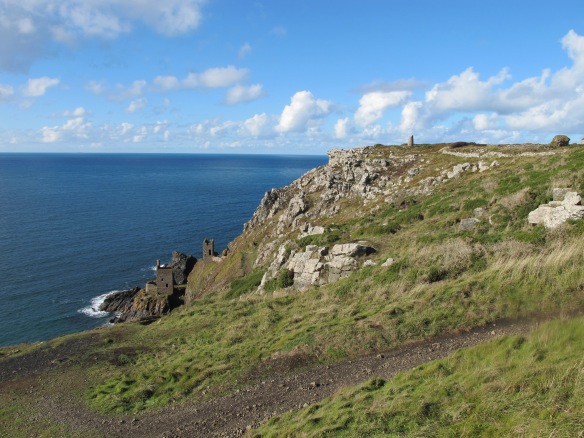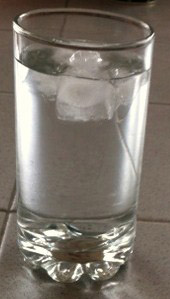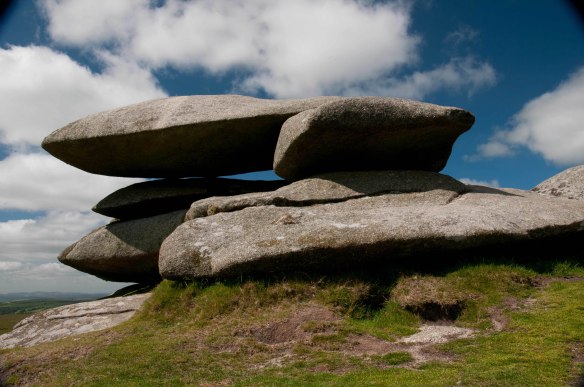What a country compares things to tells us a lot about its culture.
What does it tell us? Damned if I know, but I do know that communication’s going on and I’ll claim a point or two, if you don’t mind, for getting that much right.
So let’s talk about what people reach for when they need an off-the-shelf point of comparison. If we’re talking about size–and we are, otherwise the conversation will be too baggy to manage–the British start with a double decker bus, then move up to a football pitch, which is, if I’ve got this straight, a football field except that the football in question is what Americans call a soccer ball, not what Americans call a football, and the field may be a slightly different size. Still, it’s close enough for all of us to think, delusional creatures that we are. that we’re talking about the same thing.
After the football pitch, the British upgrade directly to Wales, and after that, they stop. Nothing on the shelf is bigger than Wales. If they want something larger, they have to improvise.
What are the standard comparisons in the U.S.? A barn door. The broad side of a barn. (I may be cheating a bit here. This usually shows up as “couldn’t hit the broad side of a…” which isn’t a comparison. Half a point to me for honesty, then take it away for cheating.)

Completely relevant photo: This dog is smaller than a bus. He is also smaller than Rhode Island. He doesn’t actually have green eyes; that’s a spooky flash effect.
If Americans need a point of comparison bigger than that, we have “the size of Rhode Island,” which I should explain for the sake of non-Americans is our smallest state.
Texas used to be our biggest state, but that was before Alaska joined the union. Now it can only claim to be the biggest in the contiguous 48 states and the most blustiferous in all 50. But the things I remember hearing compared to Texas aren’t things that can be measured in miles. You might say, “She has a student loan the size of Texas,” but I can’t remember bodies of water, other countries, or deserts being compared to it
There’s no reason they shouldn’t be, but something about Texas tempts us into off-the-wall (as opposed to off-the-shelf) comparison. And here I really am saying something about the culture behind the comparisons.
My partner’s from Texas, so I don’t say any of this from ignorance. Or by way of complaint. I admire the florid insanity that Texans (forgive the generalization; I’m going to move on now before anyone gets a chance to complain) tap into so gloriously.
I’m from New York originally. We have our own forms of insanity, but they’re not as much fun, and we lean toward the small, being more likely to say, “My first apartment was the size of your average phone booth.”
For anyone young enough to ask, “What’s a phone booth?” I might as well explain that they were booths. Around phones. One phone to a booth. And back when they existed, all phone booths were the size of your average phone booth. They varied about as much as the old black rotary-dial phone. One size fit all. I could add that some New York apartments were smaller than your average phone booth, so whoever’s apartment was the size of one was was living in luxury.
And again, that does say something about the culture. New York’s a big city in a small space. Unless a person’s insanely rich, the amount of space she or he can lay claim to is limited.
The British are fond of reminding people that they’re a small island, although the people–the they in that sentence–aren’t actually a small island. The place they live is. Still, I seem to have always heard it as “we’re a small island.”
Does it say something about the culture that the people have themselves confused with a chunk of land?
The small island excludes Northern Ireland, which is the smaller part of a different, smaller island. And that means something too, although I might do well to leave it to someone else to explain what, because I’m not at all sure. Any takers?
Soon after my partner and I first moved to Britain, the Guardian newspaper’s letter writers got into an extended discussion about using Wales as a point of comparison. The conversation started in a column that invites readers to ask and answer questions when someone asked, since it was a standard point of comparison, what size a Wales actually was. The discussion went on for so long that the editors moved it out of the column and onto to the letters page.
It’s hard to summarize an exchange of such intricate and admirable lunacy, but one highlight was the suggestion that we should learn from the metric system and standardize the Wales so that it becomes as reliable as a kilometer.
That led someone else to ask if it would be standardized at high tide or low.
As far as I can remember, no one asked, Why Wales? Northern Ireland’s smaller. Scotland’s bigger. England’s bigger still. What part of the British psyche does Wales occupy that people feel this compulsion to compare things to it?
*
If there’s one thing I’ve learned as a writer and editor, it’s that as soon as you state that something has three causes, someone will come along and tell you it has four. If you say it has four, someone will pop up with a fifth. So warm up your keypads, kidlets. I’ve missed a point of comparison. Or I’ve missed thirteen of ’em, and that’s not even starting on their implications. This is your invitation to tear up the floorboards. To shred, fold, and staple. (That’s a reference that only makes sense if you’re over a thousand years old. I am. If you’re nice, I might explain it.) Tell me what I’ve missed and what, if anything, it all means.







